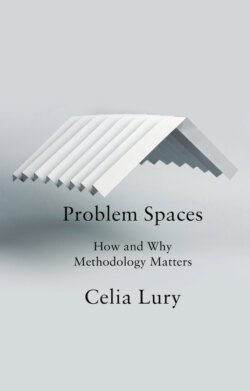Читать книгу Problem Spaces - Celia Lury - Страница 6
Introduction: The Compulsion of Composition
ОглавлениеPower is the compulsion of composition … The essence of power is the drive towards aesthetic worth for its own sake. All power is a derivative from this fact of composition attaining worth for itself. There is no other fact. Power and importance are aspects of this fact. It constitutes the drive of the universe. It is efficient cause, maintaining its power of survival. It is final cause, maintaining in the creature its appetition for creation.
Alfred North Whitehead (1968: 119)
Ann Kelly and Lynsey McGoey (2018) suggest that we are witnessing the emergence of ‘a new empire of truth’. Describing the significance of profound transformations in the ‘scaling, pace and symbolic power of fact-making’ for ‘the shifting relationships between knowledge, ignorance and power today’, they ask:
What constitutes authoritative evidence in this political climate? To what uses is evidence put, and what values does it carry? What obligations must be placed on the companies, such as Google or Facebook, that configure our new public spheres while profiting from the tracking and steering of online behaviour? What counts in the making of facts, and who does the counting? Which empirical tools and metrics garner sufficient political capital to guide policy during times of economic uncertainty? And, critically, how do the social sciences respond to the increasing social and political significance of data while accounting for the deepening popular scepticism of the facts that data are used to support? (2018: 2–3)
This book develops the thesis that to understand this new empire of truth and answer the questions Kelly and McGoey pose, a new concept of a problem space is needed.
